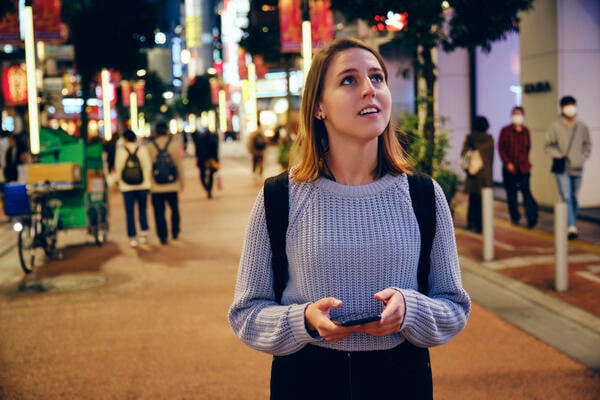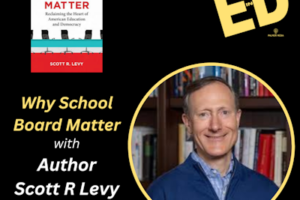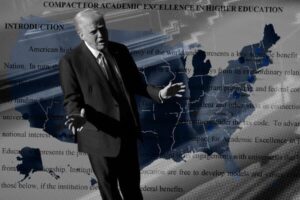
A Study Abroad Life Design Course for Transfers
For many college students, connecting their interests to career and life goals can be a challenge. Transfer students may find it especially difficult because they lack familiarity with the campus resources available to help them make those connections. A course at the University of Minnesota Carlson School of Management aims to help these students chart their path, in part by sending them on an international trip.
The Design Your Life in a Global Context course encourages transfer students to apply design thinking principles to their college career and beyond and organizes a short study abroad trip led by a faculty member. The experience, mostly paid for by the institution, breaks down barriers to the students’ participation and aims to boost their feelings of belonging at the university.
The background: Since 2022, all students in the Carlson School of Management undergraduate program have been required to complete an international experience. The goal is to motivate them to be globally competent, to support their development as business leaders and to create collaboration with international colleagues, according to the school’s website.
Study abroad experiences have been tied to personal and professional development. A recent survey of study abroad alumni by the Forum on Education Abroad found that 42 percent of respondents indicated studying in another country helped them get their first job.
For U of M’s business school students, these experiences are made possible by funding from the Carlson Family Foundation, which provides scholarships through the Carlson Global Institute and the Learning Abroad Center.
In addition to Design Your Life in a Global Context, the university offers Design Your Career in Global Context, which sends students on a similar short study abroad experience.
The framework: Design Your Life in a Global Context meets once a week throughout the fall semester and then culminates in a 10-day trip to Japan, a country instructor Lisa Novak selected because of its unique focus on work-life balance and well-being.
“If you’re familiar with the concepts of ikigai, it’s all about finding one’s purpose and aligning what you love, what the world needs, what you’re good at and what you can be paid for,” said Novak, director of student engagement and development at the Carlson School. “We’re going to be learning about this concept while we’re abroad.”
Because transfer students, like first-year students, can face challenges acclimating to their new campus and connecting with peers, the class is designed in part to provide them with resources and instill a sense of belonging within their cohort.
In addition, the course helps students apply life design principles to their whole lives, modeled after Stanford University’s design thinking framework.
“Through the class, we equip students with the tools and strategies to design their college and career experience that aligns with their values, interests, strengths, needs and goals,” Novak said.
Going abroad: During the 10-day trip, students explore Tokyo and Okinawa.
They visit Gallup’s Tokyo office to learn about the Clifton strengths assessment and the research the organization is doing in Japan. In Okinawa, students learn from residents living in a “blue zone,” an area of the world where people live the longest and have the fewest health complications.
“We learn about some of the factors that contribute to longevity in that area of the world and then connect that back to designing one’s life and a life of purpose,” Novak said.
In addition to class content, the trip offers students an opportunity to participate in intercultural learning and experience international travel that may be unfamiliar.
Before they leave for Japan, Novak and her colleagues from the Carlson Global Institute support students with travel logistics, including securing a passport, creating a packing list and navigating currency exchange.
“I also bring in different food from the area,” Novak said. “We call it ‘taste of Japan.’ I have different candy or snacks from Japan and they get to experience the culture a little bit in that way and get excited about what we’re doing.”
Novak also leads guided reflections with students before, during and after the trip to help them make sense of their travels and how the experience could shape their worldview.
“I just hope that they recognize that the world and business are increasingly global and connected,” Novak said. “Being able to navigate difference and build connections and have conversations with people that are so different than you is a powerful learning experience.”
Source link



